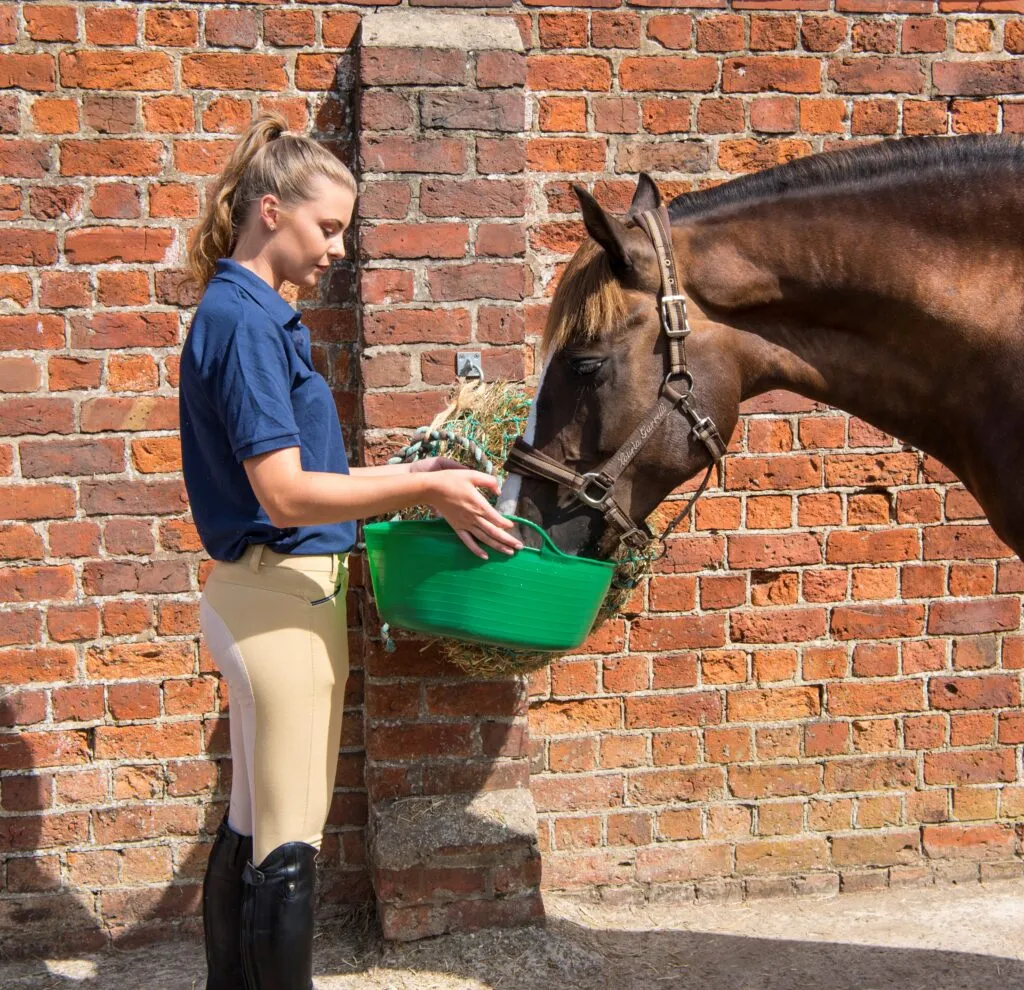Feeding your horses properly is essential for their health, energy, and overall well-being.
Understanding Horse Nutrition ; Horses require a balanced diet to stay healthy. Their diet should consist of a mix of forage, concentrates, and fresh water. Each component plays a crucial role in maintaining their health and vitality.
Forage
1. Hay: Hay is a primary source of forage for horses and should make up the majority of their diet. The most common types of hay are timothy, alfalfa, and orchard grass. Timothy hay is often recommended for adult horses due to its fiber content and low calcium levels. Alfalfa hay is richer and can be a good choice for young, growing horses or those in heavy work.
2. Pasture: If your horses have access to pasture, they can graze on fresh grass, which is a great source of nutrients. Ensure that the pasture is free from harmful plants and chemicals. Horses should be monitored while grazing to avoid overeating or consuming toxic plants.
Concentrates
1. Grains: Horses in moderate to heavy work or those who need to gain weight may require grains such as oats, barley, or corn. These should be fed in moderation, as too much can lead to digestive issues or weight problems. Always introduce grains slowly to allow your horse’s digestive system to adjust.
2. Commercial Feeds: There are many commercially prepared feeds available that are specially formulated to meet the needs of different types of horses. These feeds often come with added vitamins and minerals. Choose a feed that is appropriate for your horse’s age, activity level, and health condition.
Supplements
1. Vitamins and Minerals: Depending on the quality of your forage and feed, you might need to provide additional vitamins and minerals. Common supplements include calcium, phosphorus, magnesium, and vitamin E. Consult with a veterinarian to determine if your horse needs any specific supplements.
2. Electrolytes: Horses that sweat heavily or work hard may need extra electrolytes to replace lost minerals. These are often added to their water or feed.
Water
1. Fresh Water: Always ensure your horses have access to clean, fresh water. Water is crucial for digestion and overall health. Horses can drink between 5 to 10 gallons of water per day, depending on their size and activity level.

Feeding Guidelines
1. Quantity: The amount of feed a horse needs can vary based on its size, age, and activity level. Generally, a horse requires about 1.5 to 2% of its body weight in forage each day. For example, a 1,000-pound horse needs 15 to 20 pounds of forage daily.
2. Frequency: Horses should be fed at least twice a day. If they are on a high-grain diet or have specific dietary needs, more frequent feeding might be necessary. Ensure they have a consistent feeding schedule to maintain their digestive health.
3. Avoiding Overfeeding: Overfeeding can lead to obesity and other health issues. Measure feed quantities carefully and avoid free-choice feeding of concentrates.
Special Considerations
1. Older Horses: Older horses might have dental issues that affect their ability to chew. Providing chopped or pelleted hay can help them eat more comfortably.
2. Medical Conditions: Horses with certain medical conditions, such as laminitis or colic, may require special diets. Consult with a veterinarian to create a feeding plan tailored to your horse’s specific needs.
Final Thoughts
Feeding your horses correctly is vital for their health and happiness. By providing a balanced diet of forage, concentrates, and fresh water, and adjusting their diet based on their individual needs, you can help ensure they lead a long, healthy life. Regularly check their weight and condition, and consult with a veterinarian or equine nutritionist if you have any concerns about their diet.




